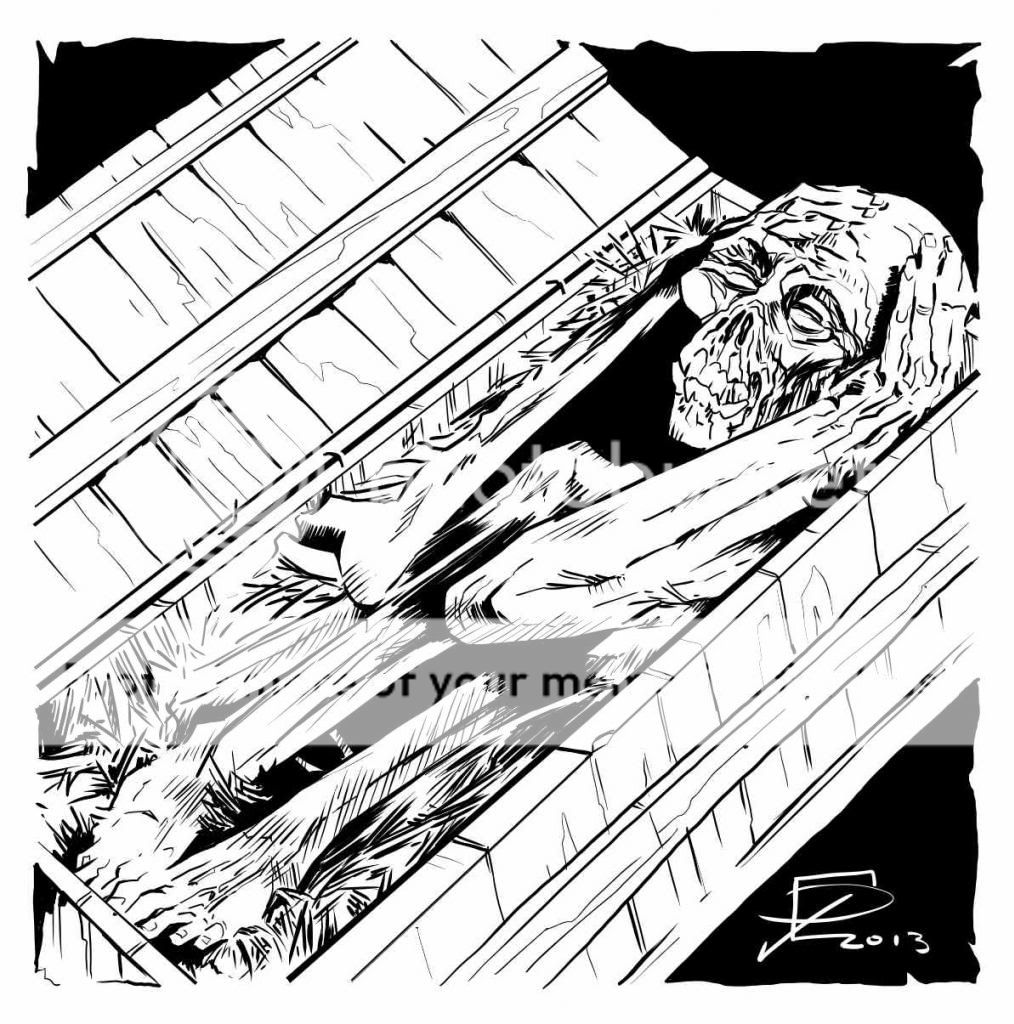Facts Concerning the Late Arthur Jermyn and His Family
We are deep into our look at the fiction
of H P Lovecraft with 22 stories under our belt. Some have been great, many
have not, but we will look at them all. This story, is an odd one to place. I
like many parts of it, in concept, but not much of it in delivery. Lovecraft is
throwing around some cool ideas, and ones he will certainly later perfect, but
in this piece it all sort of falls flat. If we look at this work as a working
draft for later ideas, it can have some more relevance.
Sadly though, this work is not scary. It
hypes up a large amount of terror, but as a reader it just isn't there. To dive
into this story further, I will state there will be some spoilers, which I
usually tend to avoid. So you might want to read the story first. Spoilers are
necessary, because giving away the ending is central to discussing this piece
of writing. Not that you can't figure out most of the mystery in the first few
paragraphs.
Arthur Jermyn is an odd story that deals
with a lot of interesting topics. At its climax we discover that the
protagonist had killed himself upon the discovery that his family lineage
traces back to his great-great-great grandmother being a human ape hybrid from
a strange ancient city in Africa. Most of the writing deals with this lineage
and the various people in it. I won't go much into all of that.
Some interesting conjecture can be made
about this. The question is why does the revelation of his ancestry terrify
Arthur enough to want to end his life. The immediate reasoning that jumps to my
mind when I think about the era in which this was written would, sadly, have to
be racism. We have talked about Lovecraft's tendency toward bigotry, and though
he may not be explicit about it here, this story may certainly be the product
of its time. Coming out of the end of the 19th century, even science had its
deplorably racial views. Anatomical studies convinced scientists of the day
that various races were in fact not the same, and commonly held belief was that
some races were closer to animals than others. (Note: science and common social
opinion was still in a bit of upheaval over the concept of evolution and many
were not willing to grasp the idea that all men were descended from apes.)
This is where Lovecraft does something
interesting. Perhaps inspired by Edgar Rice Burroughs' Tarzan novels about the
lost city of Opar and its white ape-men, Lovecraft writes about an ancient race
of beings in Africa. Subtly hinting, perhaps, that we all came from apes,
though of different kinds. This sort of revelation to some of the Edwardian
era, may find terrifying.
 |
| Illustration copyright Jeff Powers © 2013 |
Cursed lineages is something that
appears often in Lovecraft. We saw it in the Tomb, but it will all lead to the
later, Shadows over Innsmouth. Some have cited Lovecraft's own family for this
idea. Both his father and mother died in fits of madness, and perhaps there was
a fear that what befell his parents would come to him as well. There are many
links between the characters and Lovecraft's family. Including Arthur's father,
Alfred, suffering from the disease, apoplexy. This was a common catch-all
diagnosis of the time. Interestingly enough, this was the disease that HPL's
mother told him that his father had when he was taken off to hospital after
contracting syphilis. And it is, of course, the syphilis that eventually drove
him mad. So maybe, Lovecraft is working with the ideas of being out of control
of what your ancestors pass down to you.
But perhaps it is even simpler than
that. Perhaps it is just the idea that his ancestors mixed with animals at all.
I don't want to get into this debate too much, but even for many groups today,
the idea that humans are animals is a difficult one. And the concept of genetic
mixing of species a rather taboo concept. It is hard to tell exactly what the
horror is supposed to be in this story. All I can say is it doesn't translate
well to the modern reader.
In the end, the story is a bit dry and
apart from some interesting elements, it falls flat. But it certainly brings up
some interesting questions about Lovecraft's intention and state of mind, the
society in which he was writing, and perhaps some interesting contemporary
issues as well. But most importantly, it continues to set us up for more
important works down the road.
If you are following along with us on
this Lovecraft journey, you can read the full text here: HPL's Facts Concerning the Late Arthur Jermyn andHis Family


No comments:
Post a Comment